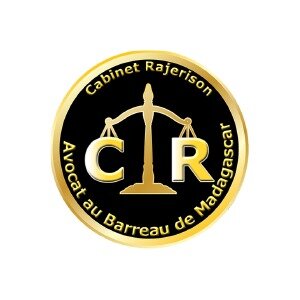Best Nonprofit & Charitable Organizations Lawyers in Madagascar
Share your needs with us, get contacted by law firms.
Free. Takes 2 min.
Or refine your search by selecting a city:
List of the best lawyers in Madagascar
About Nonprofit & Charitable Organizations Law in Madagascar
In Madagascar, nonprofit and charitable organizations play a significant role in addressing social, economic, and environmental issues. These organizations are typically formed under the legal framework that regulates associations and aims to ensure transparency, accountability, and effectiveness in their operations. Nonprofits in Madagascar can focus on various areas, including education, healthcare, conservation, economic development, and more. The legal landscape for these entities involves registration processes, tax exemptions, governance standards, and compliance with financial regulations.
Why You May Need a Lawyer
Engaging a lawyer specializing in nonprofit and charitable organization law can be crucial for several reasons. You may need legal help when establishing a nonprofit, as the process requires navigating registration and understanding legal obligations. Additionally, if your organization seeks to secure tax-exempt status, legal guidance ensures compliance with tax laws. Lawyers can also assist with contract drafting, employment issues, and addressing any legal challenges that arise from governance or operational disputes. Moreover, they can help nonprofits understand and comply with local regulations and international standards.
Local Laws Overview
The legal framework for nonprofit organizations in Madagascar involves several critical aspects. First, associations are governed by the Law on Associations, which provides guidelines on their formation, management, and dissolution. Nonprofits must register with the Ministry of Interior to gain legal recognition. Madagascar's tax code offers certain exemptions for charitable activities, but nonprofits must comply with reporting requirements and financial audits. Additionally, organizations involved in international funding must adhere to specific regulations regarding foreign donations and partnerships. Understanding these laws is essential for operating effectively and maintaining compliance.
Frequently Asked Questions
1. What is the process for registering a nonprofit in Madagascar?
To register a nonprofit, you must submit an application to the Ministry of Interior, including your organization's statutes, objectives, and list of founding members. After approval, you receive a registration certificate, officially recognizing your organization.
2. Are nonprofits in Madagascar eligible for tax exemptions?
Yes, nonprofits engaged in charitable activities can apply for tax-exempt status. This involves demonstrating that the organization serves a public benefit and complies with specific administrative and reporting requirements.
3. What governance structures are required for nonprofits?
Nonprofits must establish a governance framework, typically including a governing board and defined roles for officers. Statutes should outline procedures for decision-making, financial management, and accountability.
4. How can a nonprofit secure funding in Madagascar?
Funding can be obtained through local fundraising, international grants, partnerships, and donor contributions. Compliance with financial regulations and transparency is crucial to securing and maintaining funding sources.
5. What are the reporting requirements for nonprofits in Madagascar?
Organizations must submit annual financial reports and activity summaries to relevant governmental authorities. This ensures transparency and adherence to financial accountability standards.
6. Can foreign entities establish nonprofits in Madagascar?
Yes, foreign entities can establish nonprofits, but they must comply with specific requirements regarding foreign ownership and management participation.
7. What legal challenges might nonprofits face?
Common legal challenges include compliance with registration and reporting requirements, contractual disputes, governance conflicts, and issues related to employment and labor laws.
8. Are there restrictions on the activities of nonprofits?
Nonprofits must align their activities with their registered objectives and comply with regulations governing areas such as fundraising, foreign funding, and sector-specific laws (e.g., environmental regulations).
9. How do regulatory authorities oversee nonprofit activities?
The Ministry of Interior and other relevant governmental bodies oversee nonprofit activities, ensuring compliance with legal standards and intervening in cases of suspected mismanagement or unlawful activities.
10. What are the consequences of non-compliance with local laws?
Non-compliance can lead to consequences such as fines, loss of tax-exempt status, suspension of operations, or legal action against the organization or its officers.
Additional Resources
To navigate the complexities of nonprofit law in Madagascar, consider consulting the following resources: the Ministry of Interior for regulatory guidance, local and international nonprofit associations for networking and support, and legal firms specializing in nonprofit law. Additionally, online platforms and publications focused on legal issues in the nonprofit sector can provide valuable information and updates.
Next Steps
If you require legal assistance in the field of nonprofit and charitable organizations, consider consulting a lawyer experienced in this area of law. Begin by identifying your needs, whether it's legal consultation for establishing a new organization or addressing operational challenges. Contact law firms specializing in nonprofit law to discuss your situation. Preparing necessary documentation and having a clear understanding of your organization's objectives will facilitate effective legal support. Engage with local nonprofit networks to share insights and gain access to further legal advice and resources.
Lawzana helps you find the best lawyers and law firms in Madagascar through a curated and pre-screened list of qualified legal professionals. Our platform offers rankings and detailed profiles of attorneys and law firms, allowing you to compare based on practice areas, including Nonprofit & Charitable Organizations, experience, and client feedback.
Each profile includes a description of the firm's areas of practice, client reviews, team members and partners, year of establishment, spoken languages, office locations, contact information, social media presence, and any published articles or resources. Most firms on our platform speak English and are experienced in both local and international legal matters.
Get a quote from top-rated law firms in Madagascar — quickly, securely, and without unnecessary hassle.
Disclaimer:
The information provided on this page is for general informational purposes only and does not constitute legal advice. While we strive to ensure the accuracy and relevance of the content, legal information may change over time, and interpretations of the law can vary. You should always consult with a qualified legal professional for advice specific to your situation.
We disclaim all liability for actions taken or not taken based on the content of this page. If you believe any information is incorrect or outdated, please contact us, and we will review and update it where appropriate.
Browse nonprofit & charitable organizations law firms by city in Madagascar
Refine your search by selecting a city.














